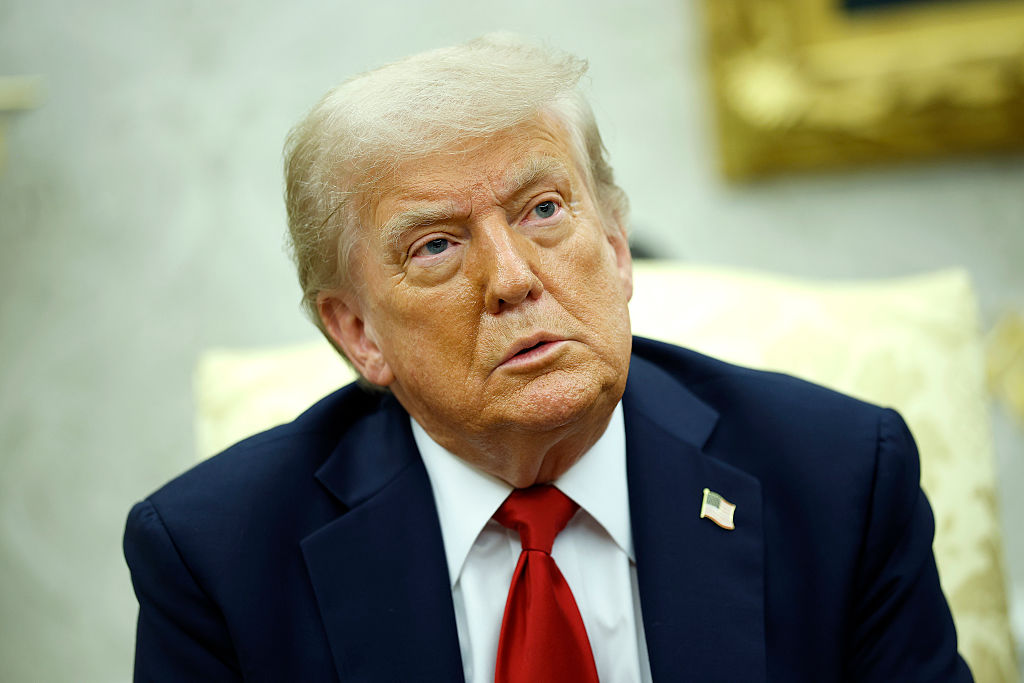President Donald J. Trump seems to have finally figured out who Vladimir Putin really is. In announcing the sale of new U.S. weapons to NATO countries that will then transfer weapons to Ukraine, Trump has finally pivoted away from his failed policy of appeasing the Russian dictator. He also suggested that the U.S. is prepared to impose sanctions on countries importing Russian oil and gas. That’s also new, and if it occurs, welcome.
[time-brightcove not-tgx=”true”]
Trump’s change in approach toward Putin was a very long time in the making. I first wrote op-eds criticizing Trump’s bromance with Putin over a decade ago. In 2017, I even gave a TED Talk called Why do Trump and Putin get along so well? Throughout his first term, Trump remained loyal to Putin, despite many of his senior foreign policy advisers urging him to change tack. Most shockingly, at the 2018 Helsinki summit, Trump sided with Putin over his intelligence community when he wrongly affirmed that there was no Russian meddling in the 2016 election.
Read More: Why Trump’s U-Turn on Ukraine Matters
In the first months of his second term, Trump stayed loyal to Putin. He showered the Russian autocrat with countless concessions to get him to end his invasion of Ukraine, including signaling a willingness to lift sanctions and recognize Crimea as part of Russia. Trump’s special envoy, Steve Witkoff, repeatedly praised the Russian strongman in their private meetings. Meanwhile, Trump called Volodymyr Zelensky a dictator, and in a humiliating Oval Office meeting, Vice President J.D. Vance asked the Ukrainian President why he never says thank you. And instead of inducements, Trump only pressured Ukraine as a means to end the war, even suspending military aid.
So, Trump’s criticism of Putin lately and his policy changes are significant. Putin has made a grave mistake in handling Trump. After Trump offered Putin sweeping concessions—which if accepted would have produced a terrible peace deal for Ukraine—the Russian leader only demanded more. It wasn’t enough that he would be allowed to occupy five Ukrainian regions and keep Ukraine out of NATO. Putin also demanded that the West stop providing weapons to Ukraine and even insisted that Zelensky be removed before Russia would negotiate a peace deal.
As he has done in the past—be it election meddling, propping up Syrian dictator Bashar al-Assad, or most egregiously launching a full-scale invasion of Ukraine in 2022 that failed to accomplish his goals—Putin overreached. He asked for too much, believing that Trump would either acquiesce or just abandon Ukraine. Putin maybe had reason to believe that he could get more from a U.S. President who seemed unconcerned about the details of a peace deal and just focused on claiming success in ending the war. (Trump vowed to end the war on “day one” and covets a Nobel Peace Prize.) However, Trump is also an impatient leader. When Putin showed little interest in genuine peace talks, Trump began to look weak. Finally, and thankfully, he had enough.
But when Putin showed little interest in genuine peace talks, Trump began to look weak. Finally, and thankfully, he had enough.
Trump’s NATO deal will lead to large-scale arms deliveries for Ukraine and profits for American weapons makers. I would have liked to see the U.S. also participate in providing some future military assistance to Ukraine. We, after all, are also a member of the defense alliance. We should share the burden of this mission.
Read More: The Man Who Wants to Save NATO
I also applaud Trump’s threat of a 100% tariff on countries that import Russian oil and gas. But why must we wait 50 days before implementing them? Trump can act today through executive action. I am also worried that he may not follow through by the deadline. China and India are the top two recipients of Russian energy exports, and the expectation that they will pressure Putin to end his war in the next 50 days seems naïve.
My final worry is that an unpredictable Trump will simply change his mind. One bad phone call with Zelensky or good conversation with Putin could see Trump change course again.
Nonetheless, his rhetoric and policy toward Russia is much better today than it was over the previous decade. Let’s celebrate the win this week, and hope for even more in the coming months.

